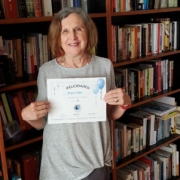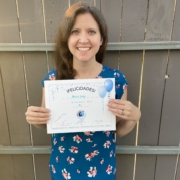Our in-house polyglot shares his language learning routine!
Our in-house polyglot shares his language learning routine!
¿Cómo están hoy, queridos alumnos?
For several weeks, I have written about how I learned the languages that I speak. The time has come to share with you the different things I do to to keep my language skills fresh. I’ll be honest; once you decide to learn a language, it is pretty similar to going to the gym: you need to keep exercising, or else you get “out of shape”. Therefore, when you speak a language, you have to commit to it and practice regularly. In my opinion, you’re basically adopting a new lifestyle, as that practice becomes part of your life.
The next few things are strategies or techniques that I use that work for me. Some of them might not work for you, or you might not like them. Hopefully, you will like some of them and try them out, if you aren’t already doing so. Ok, here we go!
1 – Speak at least one hour a week
This is essential. I make sure I speak French, Italian, Japanese and Korean every week. I speak English at home all the time and Catalan and Spanish at PBO. If you are busy and can only do one thing, speak for one hour or even just 30 minutes every week. A little bit is better than nothing.
By the way, be sure to listen carefully to the native speaker you’re talking with. You learn by speaking, but also by listening. Pay attention to the expressions they use, the sentence order, the filler words, etc. You learn a lot by listening. Oh, and repeat corrections!
2 – Read books
I like reading, and I like reading in foreign languages even more because you also learn and practice at the same time. When I read, I look up one or two words that I don’t know and I write them in the last page of the book, which is usually blank. When I read the book the next time, I review the list of words in the last page before starting.
Make sure you pick “useful” words, meaning: words that you have seen several times while reading the book, words that seem important, etc. You shouldn’t try to understand every word, because you will end up forgetting all of them and not reading at all. Just getting the core of the story is enough. Now since understanding the story is vital, you should pick a book in which you understand 70% or 75% of what you read, at least.
3 – Watch TV
Nowadays we are lucky to have services like Netflix that provide countless shows and movies in several languages. I love watching Netflix. I watch shows in the languages I learn and also American shows dubbed in foreign languages. In case you like a show from the US, why not watching it dubbed? Obviously, the original version is always better, but you could enjoy a program that you love and want to see, and learn Spanish at the same time.
Also, put the subtitles in the matching foreign language. This enables you to learn new words and to get used to the pronunciation and even the normal speed at which natives speak while having the support of the written dialogue.
4 – Listen to podcasts or Youtube videos
When I go to sleep I put my earphones on and I choose a video on Youtube. It usually is a video in which someone speaks constantly, like an audiobook in Japanese, or a speech in Korean about China’s economy.
This is the best moment in the day to do it, because everything is quiet and I can focus in what I’m listening to. Since I’m not reading any subtitles, I also practice my listening comprehension. Always make sure to choose something you like, for it is hard to focus, at least for me :)
These four things are what I do on a weekly basis. Sometimes I don’t feel like reading and sometimes my teachers have to cancel our hourly conversation class. Reading and watching TV are not super important to me, but conversation is. That’s why when one of my teachers is unavailable one day, I try to find another day or time in the same week to talk with them. You know what I always say: consistency and speaking are the most important factors when learning a language.
Besos y abrazos
Octavi











